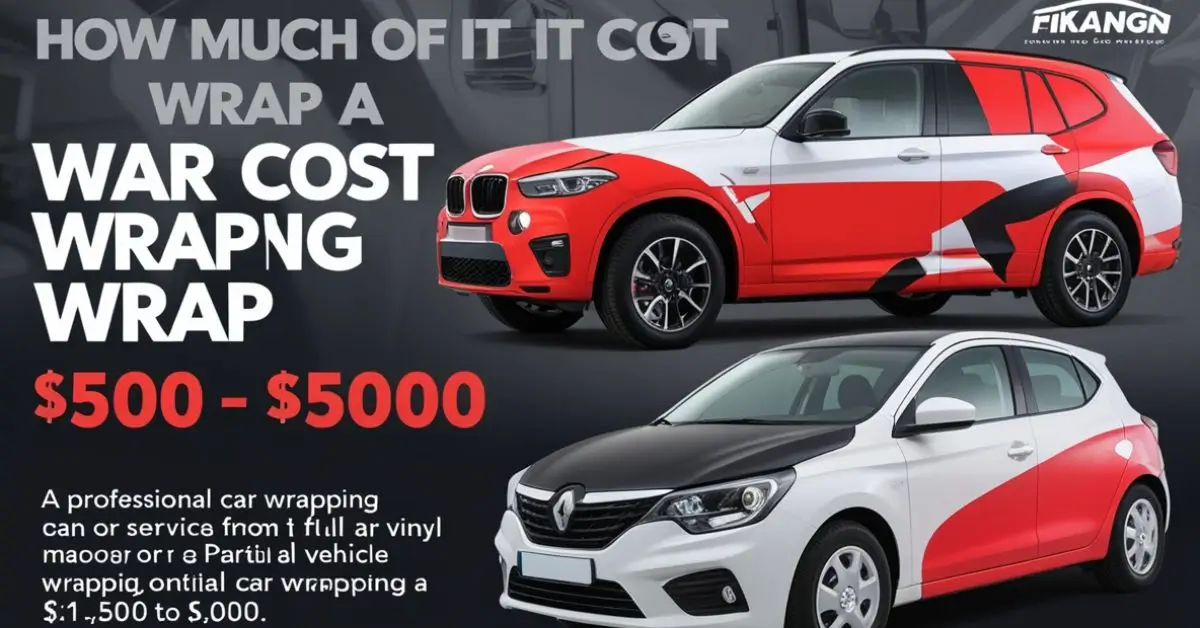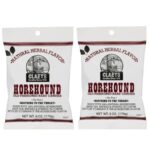How much does it cost to wrap a car depends on several factors. The cost of vehicle wrapping varies based on the size of the car, the type of vinyl material for wrapping, and whether you’re opting for a full car wrap or a partial vehicle wrap. On average, a professional car wrapping service can range from $1,500 to $5,000. For a custom car wrap, the price may be higher, especially if intricate designs are involved. The professional car wrapping charges are also influenced by the type of finish you choose, like glossy car wraps or matte finish wraps, and the complexity of installation.
| Section | Summary |
| What Is Wrapping a Car? | Covers how vinyl wraps are used to change or protect a car’s appearance. |
| Different Types of Car Wraps | Describes full, partial, matte, and glossy wraps. |
| Why Wrap Your Car? | Benefits include paint protection and vehicle appearance enhancement. |
| Downside of Car Wrapping? | Discusses potential issues like wrap durability and removal costs. |
| How Is a Car Wrap Installed? | Explains the installation process using a heat gun for vinyl. |
| Cost of Professional Wrapping | Covers costs for professional wraps and compares with DIY wrapping. |
| DIY Car Wrapping | Explains tools and skills required for DIY car wrapping. |
| Cost of DIY Wrapping | Compares DIY car wrapping costs to professional services. |
| Tools for DIY Wrapping | Lists tools like heat guns and vinyl material for DIY jobs. |
| Pitfalls of DIY Wrapping | Discusses common challenges like bubbles and vinyl wrap longevity in DIY wrapping. |
| Preparing Your Car for Wrapping | Emphasizes cleaning the car for optimal vinyl wrap installation. |
| Choosing the Right Vinyl | Offers guidance on picking the best vinyl material for wrapping. |
| Handling Bubbles and Kinks | Tips for fixing bubbles and kinks during installation. |
| Heat in Car Wrapping | Explains how heat helps mold the vinyl wrap during installation. |
| Workspace for Wrapping | Importance of a clean, controlled workspace for vinyl wrap installation. |
| Removing a Car Wrap | Describes the car wrap removal process and when it’s needed. |
| Car Wrap Longevity | Discusses how long vinyl wraps last and factors affecting lifespan. |
| Car Wrap Maintenance | Offers tips on maintaining and cleaning vinyl wraps for longer life. |
| Cost Difference: Professional vs DIY | Compares the costs of professional and DIY car wrapping. |
| Replacing or Reapplying a Wrap | Guidance on when to replace or reapply your vinyl wrap for the best results. |
What Is Wrapping a Car?
Wrapping a car involves covering the car’s exterior with a large sheet of vinyl wrap. This vinyl material for wrapping can change your car’s look entirely, giving it a sleek new color or unique design. Some people use it for vehicle rebranding or to display vehicle decals. It’s an effective way to protect the original paint from scratches, dirt, and the sun’s harmful UV rays. Whether you want a full car wrap or a partial vehicle wrap, the vinyl wrap serves as a durable, customizable option.
The car wrapping process typically involves cleaning the car, measuring, cutting, and applying the vinyl carefully to every panel. This can be done professionally or by DIY car wrapping enthusiasts. Matte finish wraps and glossy car wraps are just some of the popular finishes that can be chosen, each offering a different aesthetic.
Different Types of Car Wraps
When it comes to vehicle design, the options are endless. The two most common types of wraps are full car wraps and partial vehicle wraps. A full car wrap covers the entire vehicle, transforming its appearance completely. A partial vehicle wrap, on the other hand, might only cover specific areas, like the hood, roof, or side panels. These are perfect for those who want to make a statement without covering the entire car.
Another important factor is the finish of the wrap. Glossy car wraps give the car a shiny, smooth finish that’s perfect for reflecting light. On the other hand, matte finish wraps provide a smooth, non-reflective surface that looks sleek and modern. Additionally, some wraps come with special designs like custom design wraps, which allow for unique graphics and artwork. If you’re looking to promote a business, vinyl wrapping for advertising is a great choice.
Why Should You Wrap Your Car?
There are many reasons to consider car wrapping. First, it offers car paint protection. A scratch protection film or clear car wrap can protect your vehicle’s original paint from damage. Secondly, vehicle appearance enhancement is one of the primary reasons people choose to wrap their cars. Whether you want to change your car’s color or advertise your business, a vinyl wrap allows you to do so easily.
Additionally, vehicle wraps are a cost-effective solution compared to repainting a car. They can even add value to your vehicle if you decide to sell it later on. With vehicle wrap cleaning techniques, you can maintain your wrap and ensure it stays in top condition for years.
Is There a Downside to Wrapping a Car?
While car wraps are a great option for many, there are some downsides to consider. One concern is the vinyl wrap longevity. A vinyl wrap can last anywhere from 3 to 7 years, depending on maintenance and exposure to the elements. If not properly cared for, the wrap can start to peel or fade over time. Also, some people find the initial cost of professional car wrapping charges higher than they anticipated.
Another downside is the car wrap removal process. Removing a vinyl wrap can be tricky, especially if it’s been on the car for a long time. It requires patience, the right tools, and sometimes professional help. However, if done correctly, it won’t damage the car’s original paint underneath.
How Is a Car Wrap Installed?
The wrap installation process requires skill and precision. A professional wrapping service will ensure the vinyl wrap is applied correctly, with no air bubbles or wrinkles. The first step involves cleaning the car thoroughly to remove any dirt or grease. After that, the vinyl wrap is measured and cut to fit the car’s panels. Using a heat gun for vinyl, the vinyl is carefully applied to each panel, stretching it to fit perfectly. The installer then works out any air bubbles or wrinkles to ensure a smooth, seamless finish.
For those who choose DIY car wrapping, it’s essential to follow a step-by-step car wrapping guide to ensure proper application. While it can be cheaper than hiring a professional, the process can take longer and requires careful attention to detail. The car body wraps must be applied with precision to avoid mistakes.
How Much Will a Professional Charge for Wrapping a Car?
The cost of vehicle wrapping varies depending on several factors, such as the car’s size, the type of wrap, and the complexity of the design. On average, professional car wrapping charges can range from $1,500 to $5,000 for a full car wrap. Smaller vehicles or partial vehicle wraps are generally less expensive. A custom car wrap or a design with intricate details can add to the cost.
While the initial cost may seem high, it’s important to consider the long-term benefits, such as vehicle paint protection and the potential for vehicle rebranding. Some companies also offer scratch-resistant wraps, which provide additional protection against damage.
What Does It Take to Wrap a Car Yourself?
Wrapping your own car is an appealing option for those looking to save money. However, DIY car wrapping requires patience and the right tools. You’ll need to buy the vinyl wrap, which can cost between $400 and $1,500 depending on the quality and type of wrap. The tools you’ll need include a heat gun for vinyl, squeegees, a sharp knife, and a measuring tape. Make sure you have a clean, well-lit area to work in, as dust and dirt can cause imperfections.
While DIY car wrapping can be satisfying, it’s not without its challenges. If you’ve never wrapped a car before, expect some trial and error. Wrapping tight corners and edges can be tricky, and it’s easy to make mistakes, which may result in visible flaws.
How Much Does It Cost to Wrap a Car Yourself?
When you choose to wrap your car yourself, you’ll save on labor costs. However, DIY car wrapping comes with its own set of expenses. For a typical vinyl wrap, you can expect to pay between $400 and $1,500, depending on the quality of the material. You’ll also need to invest in the right tools, which may cost an additional $100 to $200. While the cost of vehicle wrapping may be lower compared to professional services, it’s important to factor in the time and effort required.
What Are the Tools Needed for DIY Car Wrapping?
If you decide to tackle the job yourself, you’ll need to gather the right tools. These include a heat gun for vinyl, a sharp utility knife, squeegees, a measuring tape, and a microfiber cloth. You’ll also need the vinyl wrap, which is available in various types and finishes. Be sure to get a high-quality vinyl material for wrapping that suits your needs, whether you’re going for a matte finish wrap or a glossy car wrap.
The Pitfalls of DIY Car Wrapping for First-Timers
Even with the right tools and materials, DIY car wrapping is not easy. Vinyl wraps can be tricky to apply, especially around curves and edges. One common issue is air bubbles. While they can often be removed with a squeegee, getting rid of stubborn bubbles can be difficult. Another challenge is handling the heat and humidity during wrapping. The vinyl material for wrapping needs to be heated to the right temperature to stretch properly, but too much heat can cause it to shrink or warp.
How to Prepare Your Car for Wrapping
Proper cleanliness before wrapping is crucial for a successful wrap. Before applying the vinyl wrap, wash your car thoroughly to remove any dirt or grease. Use a special cleaner designed for vinyl wrap application, and ensure the car’s surface is dry and free of any contaminants. This step is important because even small particles can affect how the vinyl material for wrapping adheres to the car.
Choosing the Right Vinyl for Your Car Wrap
The vinyl material for wrapping you choose can make a big difference in the final result. There are various types of vinyl available, including glossy car wraps, matte finish wraps, and scratch-resistant wraps. Choose a high-quality vinyl brand like 3M or Avery Dennison for the best results. If you’re unsure, consult with a professional wrapping service to help you choose the right vinyl for your needs.
How to Handle Bubbles and Kinks in the Vinyl
When applying the vinyl wrap, you may encounter air bubbles or kinks. To fix these, use a heat gun for vinyl to gently warm the area, making it easier to smooth out the vinyl. Use a squeegee to push out any bubbles, starting from the center and moving outward. If you see wrinkles or kinks, carefully stretch the vinyl while applying heat to smooth them out.
The Role of Heat in Car Wrapping
Heat is an essential part of the car wrapping process. It helps the vinyl stretch and mold around curves and edges. A heat gun for vinyl is typically used to warm the vinyl to the right temperature, allowing it to adhere more easily to the car’s surface. However, too much heat can damage the vinyl, so it’s important to find the right balance.
The Importance of a Controlled Workspace for Wrapping
To ensure the best results, you need a clean, controlled workspace. A vinyl wrap is sensitive to dust, dirt, and temperature changes. A temperature-controlled environment will prevent the vinyl material for wrapping from becoming too stiff or too soft, which could lead to imperfections during the wrapping process. Make sure you have adequate lighting and enough space to work comfortably.
Can You Remove a Car Wrap Yourself?
Removing a car wrap is possible, but it can be tricky. The process involves using a heat gun for vinyl to soften the adhesive and carefully peeling the vinyl off. While you can do it yourself, professional removal may be necessary if the wrap is old or hard to remove. Vinyl wrap removal costs can vary depending on the condition of the wrap and how much time it takes.
How Long Does a Car Wrap Last?
The lifespan of a vinyl wrap depends on several factors, such as the quality of the material, how well it is maintained, and how often the car is exposed to sunlight. On average, a vinyl wrap can last anywhere from 3 to 7 years. A well-maintained wrap, with proper car wrap maintenance tips, will last longer, ensuring that your vehicle body wraps stay looking fresh for years.
Maintaining Your Car Wrap After Installation
To keep your vinyl wrap in top condition, it’s important to follow proper car wrap maintenance guidelines. Regularly wash your car with a mild soap and soft cloth to remove dirt and debris. Avoid using harsh chemicals or abrasive materials, as these can damage the wrap. If your vinyl wrap starts to show signs of wear, take it to a professional for repairs.
The Cost Difference Between Professional and DIY Car Wrapping
There’s a significant difference in cost between professional wrapping services and DIY car wrapping. A professional service will cost more, but you’ll get a flawless result and a car paint protection layer that’s hard to match with DIY. On the other hand, DIY car wrapping can save you money, but it requires time, effort, and skill. For a high-quality job, hiring a professional is usually the better option.
When to Replace or Reapply a Car Wrap
Vinyl wraps typically last several years, but eventually, they will need to be replaced. If you notice fading, peeling, or cracks in the vinyl, it’s time to reapply a new wrap. Replacing a wrap can refresh your car’s look, protect the paint, and maintain its overall appearance.
Conclusion:
How much does it cost to wrap a car depends on several factors like the type of vinyl material, the size of the car, and whether you choose a full car wrap or a partial vehicle wrap. Prices can range from $1,500 to $5,000 for professional car wrapping services, with higher costs for custom design wraps. While DIY options may seem cheaper, they require car wrap tools and skill. Ultimately, a vehicle wrap offers an excellent way to enhance your car’s appearance and protect its paint.












